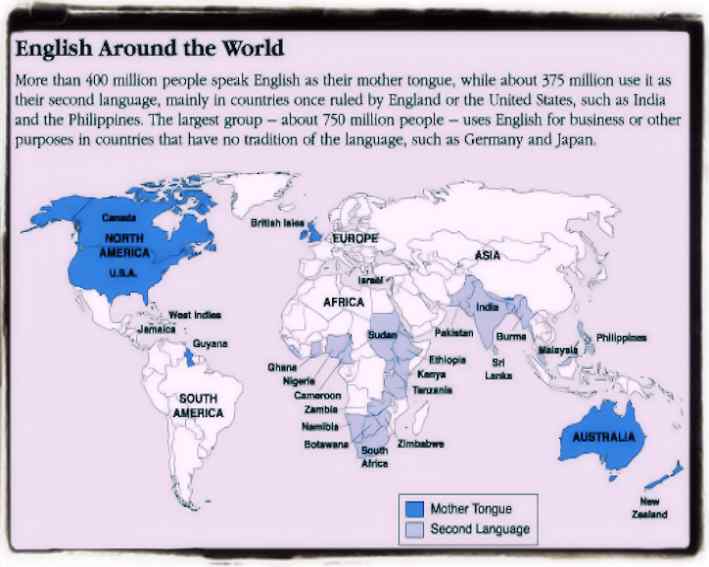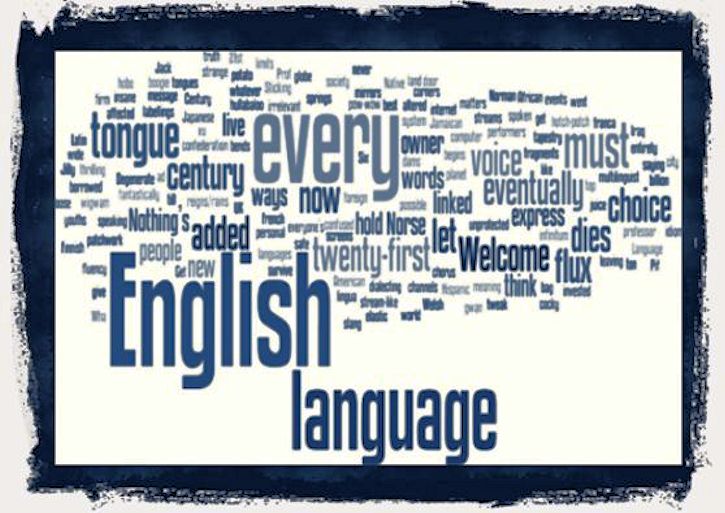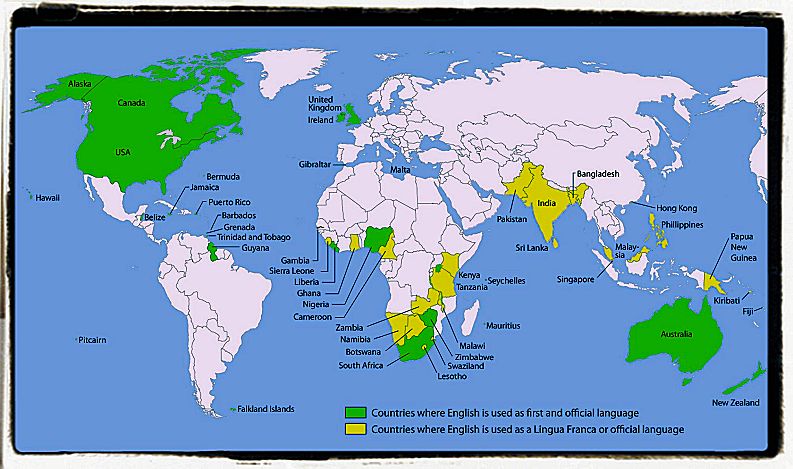
The World of English, its language, its culture, its varieties and its future. We all live in a small unique world, that’s why we need at least one sole common language.
Carl William Brown
Because it is capable of infinite possibilities of communication, the English language has become the chief international language.
Mario Pei
We cannot know too much about the language we speak every day of our lives. Most of us, it is true, can get along fairly well without knowing very much about our language and without ever taking the trouble to open a volume of The Oxford English Dictionary. But knowledge is power. The power of rightly chosen words is very great, whether those words are intended to inform, to entertain, or to move.
Simeon Potter
We recognize that the language of he mother-country now encircles the globe; that the literature of each of its branches is the common possession of all.
Noah Porter Webster’s International Dictionary 1890
English is rapidly becoming a cosmopolitan means of communication and it is now being studied by numerous well-trained investigators on both sides of the Atlantic… This we see in many differing spheres: in national and local government, in business and journalism, in radio and television, in school and university.
Simeon Potter
Our main goal is to meet people who can talk, write, teach and learn the English language through all the different uses of it and who can share various experiences to fulfill our project and mission. We try to work with all the different countries and cultures, through the web, the media and other different networks to encourage public opinion to support English historic and future role as the World ‘s common, unifying language, and to persuade lawmakers and intellectuals to adopt English as the official language at all levels of government.
Carl William Brown
The English language is vast, flexible, fascinating, frustrating, challenging, inspiring and endlessly changing. To take it for granted is to miss much of its richness and complexity. Approximately 375 million people speak English as their first language and more than 1 billion as non-native speaskers, for 1.4 billion of total speakers. English today is probably the third largest language by number of native speakers, after Mandarin Chinese and Spanish.
According to Ethnologue, English is the most-spoken language in the world including native and non-native speakers. Like Latin or Greek at the time, English has become the world’s common language. It serves as a global lingua franca and is used extensively in business, science, international communication, tourism, technology, and much more. A bilingual person who speaks Spanish and English can understand 1 in 3 people who connect to the Internet. They can also access over 60% of everything published on the web.
The countries with the highest populations of native English speakers are, in descending order:
United States (215 million)
United Kingdom (58 million)
Canada (18.2 million)
Australia (15.5 million)
Ireland (3.8 million)
From around 1600, the English colonization of North America resulted in the creation of a distinct American variety of English. Some English pronunciations and words “froze” when they reached America. In some ways, American English is more like the English of Shakespeare than modern British English is. Some expressions that the British call “Americanisms” are in fact original British expressions that were preserved in the colonies while lost for a time in Britain (for example trash for rubbish, loan as a verb instead of lend, and fall for autumn; another example, frame-up, was re-imported into Britain through Hollywood gangster movies). Spanish also had an influence on American English (and subsequently British English), with words like canyon, ranch, stampede and vigilante being examples of Spanish words that entered English through the settlement of the American West. French words (through Louisiana) and West African words (through the slave trade) also influenced American English (and so, to an extent, British English).
Today, American English is particularly influential, due to the USA’s dominance of cinema, television, popular music, trade and technology (including the Internet). But there are many other varieties of English around the world, including for example Australian English, New Zealand English, Canadian English, South African English, Indian English and Caribbean English.
In Great Britain at present the speech of educated persons is known as Received Standard English. A class dialect rather than a regional dialect, it is based on the type of speech cultivated at such schools as Eton and Harrow and at such of the older universities as Oxford and Cambridge. Many English people who speak regional dialects in their childhood acquire Received Standard English while attending school and university. Its influence has become even stronger in recent years because of its use by such public media as the British Broadcasting Corp.

The industrial and technological achievements, mainly of Britain and the United States, has made English the international language of many different fields, like: International air traffic control; Sea navigation (morse code between ships); The complex jargon of computers and space technology; International scientific, business and financial world conferences; Advertising and marketing is another field which is largely dominated by the English language. What’s more through the Afro-American, English became the language of jazz.
English continues as the language of pop music throughout the world not only from British and American pop stars but as the chosen language of the Swedish group Abba and the Spanish group Baccara, and no doubt many others in other countries. The British enthusiasm for competitive sport has given the world soccer football, rugby football, golf, tennis, cricket, squash, boxing, competitive swimming, rowing, modern horse racing and even ping gong. To this list, the Americans have added volley ball, basketball and baseball. It is hardly surprising that English is the international language of sport, and words like “corner”, “penalty”, “goal”, “K. O.” and smash” are familiar in every language.
English is also the language of education. Throughout the third world, most secondary education and virtually all university lectures are in English. Even in Europe in countries as small as Sweden and as large as Russia, scientists and scholars of all kinds write their most important research and theses in English to guarantee the largest possible audience. And since the formation of the NATO forces, English ha’s also become the language of the western military establishment the soldiers of all NATO countries being trained and taught in English. In addition, the English language can claim the most extensive and richest poetical literature of any language in the world.
Anyway, as a matter of fact, more than 50 countries officially list English as an official language, and nowadays there are about 1.27 billion English speakers around the world. This makes it the most spoken language, ahead of Mandarin Chinese (1.12 billion speakers) and Hindi (637 million speakers).
And last but not least:
The English language has a veritable power of expression such as, perhaps, never stood at the command of any other language of men. Its highly spiritual genius and wonderfully happy development and condition have been the result of a surprisingly intimate union of the two noblest languages in modern Europe, the Teutonic and the Romanic. It is well known in what relation these two stand to one another in the English tongue; the former supplying, in far larger proportion, the material groundwork; the latter, the spiritual conceptions. In truth, the English language, which by no mere accident has produced and upborne the greatest and most predominant poet of modern times, as distinguished from the ancient classical poetry (I can, of course, only mean Shakespeare), may, with all right, be called a world-language, and, like the English people, appears destined hereafter to prevail, with a sway more extensive even than its present, over all the portions of the globe. For in wealth, good sense, and closeness of structure no other of the languages at this day spoken deserves to be compared with it, – not even our German, which is torn, even as we are torn, and must first rid itself of many defects before it can enter boldly into the lists as a competitor with the English.
Jacob Grimm

A brief chronology of English
Old English
BC 55 – Roman invasion of Britain by Julius Caesar. Local inhabitants speak Celtish
BC 43 – Roman invasion and occupation. Beginning of Roman rule of Britain.
436 – Roman withdrawal from Britain complete.
449 – Settlement of Britain by Germanic invaders begins
450-480 – Earliest known Old English inscriptions.
1066 – William the Conqueror, Duke of Normandy, invades and conquers England.
Middle English
c1150 – Earliest surviving manuscripts in Middle English. Middle English
1348 – English replaces Latin as the language of instruction in most schools.
1362 – English replaces French as the language of law. English is used in Parliament for the first time.
c1388 – Chaucer starts writing The Canterbury Tales.
c1400 – The Great Vowel Shift begins.
Early Modern English
1476 – William Caxton establishes the first English printing press. Early Modern English
1564 – Shakespeare is born.
1604 – Table Alphabeticall, the first English dictionary, is published.
1607 – The first permanent English settlement in the New World (Jamestown) is established.
1616 – Shakespeare dies.
1623 – Shakespeare’s First Folio is published
1702 – The first daily English-language newspaper, The Daily Courant, is published in London.
1755 – Samuel Johnson publishes his English dictionary.
1776 – Thomas Jefferson writes the American Declaration of Independence.
1782 – Britain abandons its American colonies.
Late Modern English
1828 – Webster publishes his American English dictionary. Late Modern English
1922 – The British Broadcasting Corporation is founded.
1928 – The Oxford English Dictionary is published.
To learn, to practice and to improve the English Language, the Use of Internet and Marketing Strategies write us, we can guarantee free advice, good tricks, useful cooperation, lot of materials and ideas. Find out more at the following links:
The English Language article ;
The world of English language ;
Questions and answers on English ;
On Facebook ;


